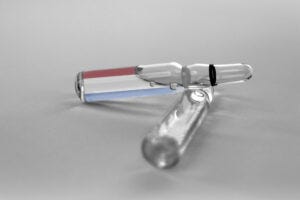
Those looking to buy Bilthoven, The Netherlands-based vaccine contract manufacturer Intravacc have until 2 June to contact the Dutch State.
Founded in 2013, Intravacc is a 200-person strong contract development and manufacturing organization (CDMO) with a 2,000 square-meter site located in the Utrecht Science Park, Bilthoven with two GMP facilities offering production up to 200 L.
The state-owned vaccine maker has transferred its technology for vaccines including polio, measles, DTP, Hib and influenza. The firm played a part in an in-country effort to secure pandemic vaccine production, and has also struck development deals with the Coalition for Epidemic Preparedness Innovations (CEPI), and the US National Institute of Allergy and Infectious Diseases (NIAID).

Image: DepositPhotos/
Allexxandar
But now the Government of The Netherlands has put the company up for sale via auction.
The sale of the company has been debated for months in the Dutch parliament, with several opposition parties concerned about selling state-funded vaccine development to a commercial party.
However, CEO Jan Groen told Dutch news outlet FD in February privatizing the CDMO is crucial going forward as “the development of new vaccines is not a government task.”
The advert states: “Parties that are interested in participating in the controlled auction process are invited to contact EY Strategy and Transactions, financial adviser to the Dutch State, by email ultimately by 12.00AM (CET) on Friday 2 June 2023 at [email protected] to express their interest and to receive more information on the sales process and associated procedures.”
The Netherlands is not the only country to offload its state-owned vaccine capabilities. Last year, the UK Government sold its 74,000 square-foot Vaccine Manufacturing & Innovation Centre (VMIC) near Oxford to CDMO Catalent. Announced in early 2020, the VMIC cost the taxpayer around £200 million ($251 million). Production never began before it was sold for an undisclosed fee, and Catalent has since mothballed the plant citing changing industry dynamics driven by lower COVID-19 related product demand.
About the Author
You May Also Like

schedl_b_and_w.jpg?width=100&auto=webp&quality=80&disable=upscale)
schedl_b_and_w.jpg?width=400&auto=webp&quality=80&disable=upscale)


